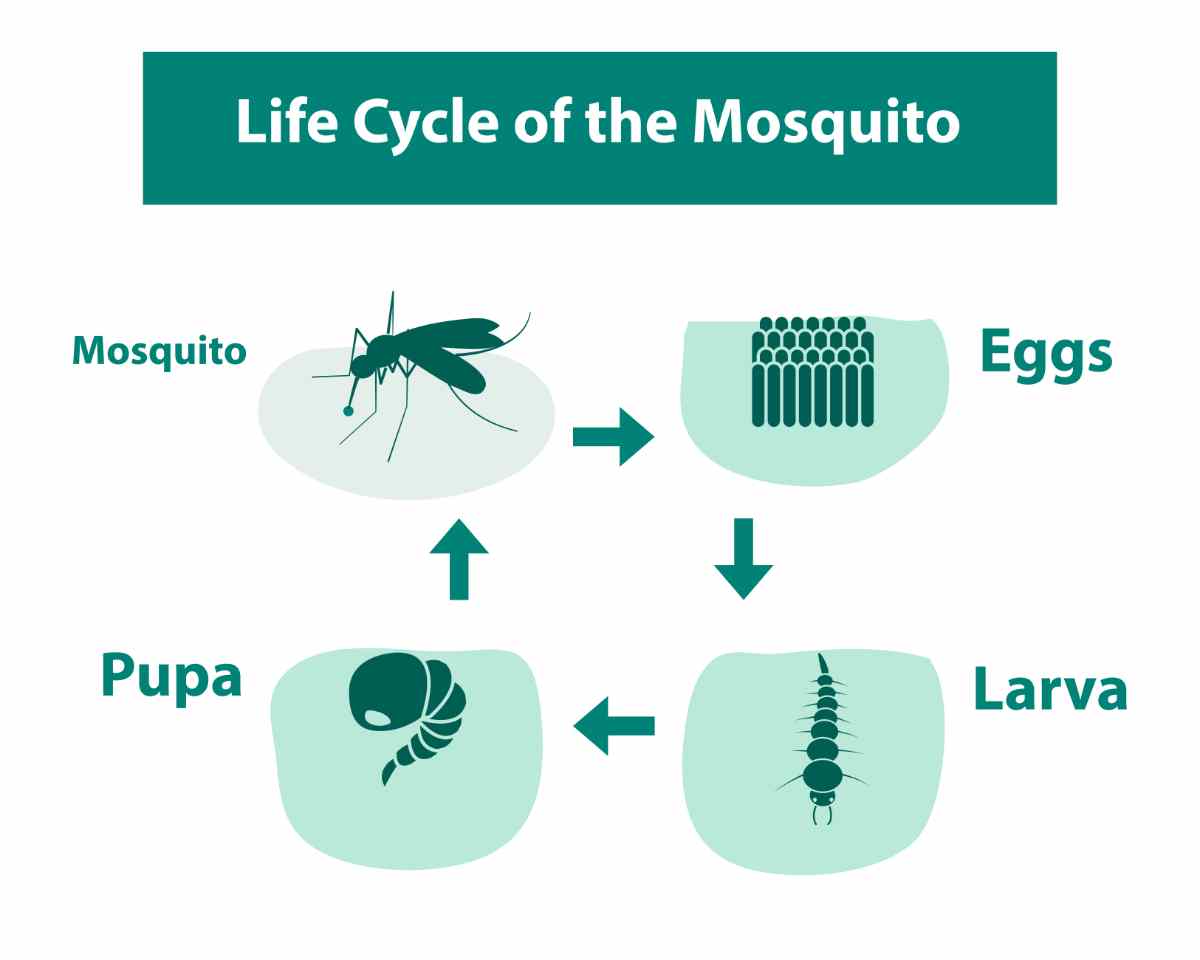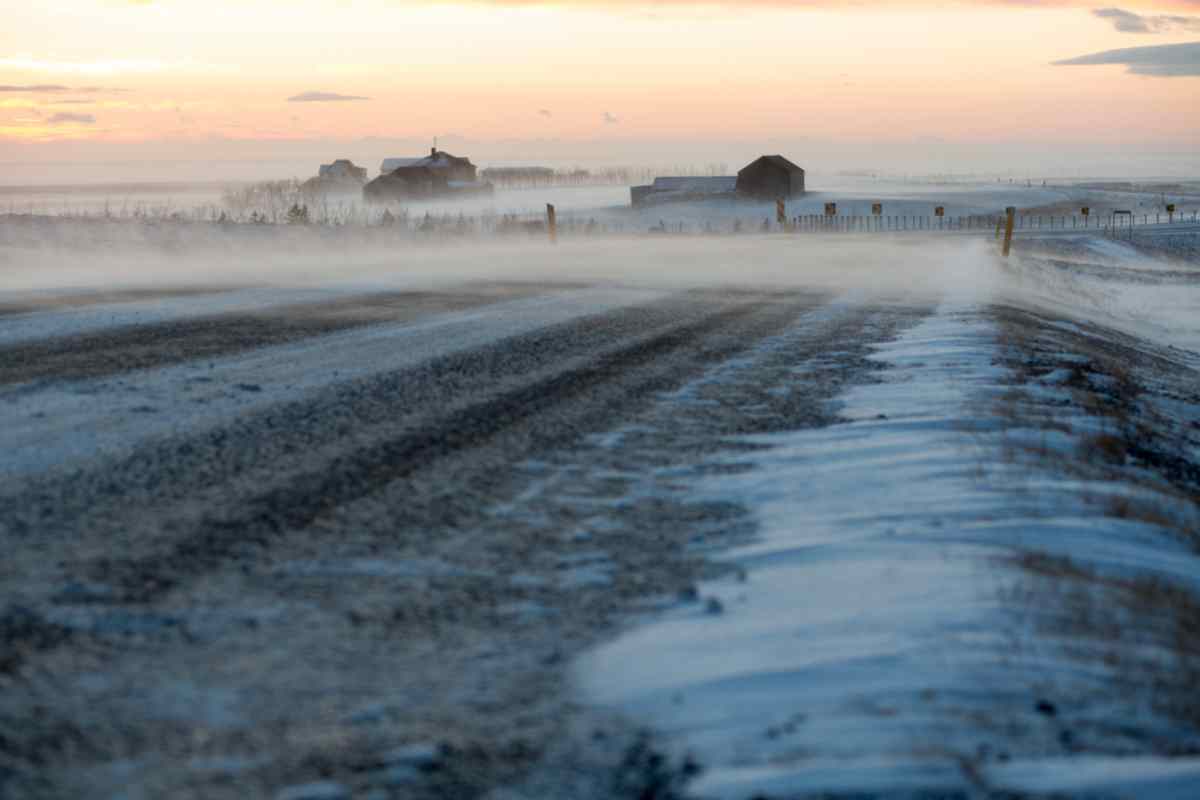24-05-2024

When you think of Iceland, you might picture its stunning landscapes of volcanic fields, towering glaciers, and hot springs, but have you ever wondered about Iceland's mosquitoes? It's an odd query, sure, but an intriguing one.
Surprisingly, amidst its unique ecosystem, Iceland stands out for a reason you might not expect: it's virtually mosquito-free. This fascinating phenomenon has piqued the curiosity of many, given that nearby countries like Greenland, Scandinavia, and the United Kingdom host various species of mosquitoes. How is it that Iceland remains an outlier in this regard?
Does its chilly weather play a role, or is there something peculiar about its waters? While the country does have its share of blood-sucking insects, mosquitoes have yet to claim it as their home. In this blog, we'll explore the factors contributing to this anomaly and attempt to answer the pressing question: Why aren't there mosquitoes in Iceland?

The primary reason why there are no mosquitos in Iceland is the country's erratic weather patterns. Unlike its neighbors, such as Greenland and Norway, which enjoy relatively more consistent climates, Iceland is known for its unpredictable weather. A popular saying among Icelanders, 'If you don't like the weather, wait five minutes,' reflects this, as one can experience multiple seasons within a single day. This weather inconsistency introduces several challenges:
The Climate Conundrum: Iceland's fluctuating weather makes it difficult for mosquitoes to adapt and survive. The country's climate swings prevent mosquitoes from completing their lifecycle.
The Water Temperature Puzzle: The cold water temperatures in Iceland are another significant deterrent. Mosquitoes require warmer waters to breed effectively, and most water bodies in Iceland are too cold for their breeding cycles.
Geothermal Wonders: While Iceland is famous for its geothermal activity, these heat sources do not make the surrounding environments hospitable for mosquitoes. The geothermal areas are often devoid of standing water where mosquitoes could breed.
A Survival Challenge: The combined effect of Iceland's weather, cold water, and geothermal activity creates an environment where the lifecycle of mosquitoes faces too many hurdles, making Iceland an incredibly hostile place for these insects to establish a stable presence.

You might breathe a sigh of relief knowing mosquitoes in Iceland are a non-issue, but don't be fooled into thinking you'll escape bug bites entirely. While the island evades the clutches of mosquitoes, it's still home to a variety of other insects. Notably, wasps and midges in Iceland play a significant part in the local insect drama.
These little critters often get mistaken for their blood-sucking counterparts due to their appearance. There are two key types of midges to note: one mimics a mosquito's look without the bite, while the other, akin to small flies, does indulge in a blood meal. Those blood-thirsty midges can leave you with itchy memories, albeit sans disease transmission, thankfully.
You'll find these midges primarily by water sources—lakes and streams sparkle in their eyes, especially during the balmy summer months. The presence of midges has even influenced the local dictionary, with landmarks like Lake Myvatn, translating to 'Lake of Midges,' showcasing their prominence. Despite the absence of mosquitoes, insects in Iceland, particularly the midges and wasps, maintain a steady presence.
Apart from midges and wasps, you'll find an entire ecosystem of insects thriving in Iceland, with over 1000 species recorded to date. This diverse insect population includes flies, flying gnats, butterflies, ants, spiders, and more.
These insects play essential roles in Iceland's ecosystem, serving as pollinators, decomposers, and food sources for other animals. While some bugs in Iceland may be a nuisance or even harmful, it's imperative to remember their crucial role in the ecosystem.
The lack of mosquitoes in Iceland does not equate to an absence of all insects but rather highlights the unique balance of this island's environment.

While there are no mosquitoes in Iceland, you shouldn't underestimate Iceland's bugs. Particularly during the summer seasons, when you're out enjoying the expansive natural beauty - from the serene fjords to the mesmerizing Northern Lights - the midges come into play. Here's a quick rundown on why it's a wise choice to be prepared:
Highly Recommended Protection: Even without the nuisance of mosquitoes, using insect repellent is advisable to fend off midges, especially during outdoor activities or when exploring near water bodies.
Specific Repellent Types: You might not find the traditional mosquito repellent that you're used to back home. Instead, search for products like Moustidose Deet, which has 30% DEET available in Iceland and is effective against the local insect population.
Post-Bite Care: In the unfortunate event you're bitten, consider applying Mildison, a topical corticosteroid, to alleviate itching and inflammation.
Alright, talking about a world sans mosquitoes, especially highlighting the unique case of mosquitoes in Iceland or, rather, how Iceland has no mosquitoes, stirs up quite an interesting conversation. Here's the lowdown:
Ecosystem Balance: Iceland's lack of mosquitoes isn't just a quirky fact; it's a testament to its unique ecosystem. The absence of these insects suggests that other factors – like the weather and geothermal activity – play crucial roles in maintaining the balance. It poses an interesting question about what mosquitoes contribute or detract in other ecosystems and how nature compensates (or doesn't) for their absence.
Human Health and Comfort: For residents and tourists alike, the absence of mosquitoes in Iceland is frankly a breath of fresh air (minus the midges, of course). Not having to slather on repellent or swat away pests all day improves outdoor experiences, not to mention the potential reduction in mosquito-borne diseases. It's a win-win for health and comfort.
Conservation Lessons: The world could definitely take a page from Iceland's book on how to naturally manage mosquito populations. While the unique climate and geographical features of Iceland are tough to replicate, the principle of letting nature manage its course, reducing stagnant water, and maybe leveraging some geothermal heat here and there could have a positive impact on mosquito populations globally.

Given Iceland's changing ecosystem, the old saying 'Never say never' rings particularly true when considering the future presence of mosquitoes in Iceland. In the past two decades alone, Iceland has witnessed an influx of 200 insect species that were previously unable to survive its harsh conditions.
This remarkable shift highlights the island's gradual yet significant ecological transformation. Such changes suggest that what was once deemed impossible could become a reality, potentially paving the way for mosquitoes to find a hospitable environment in Iceland.
The absence of mosquitoes in Iceland adds to the allure of exploring this unique landscape, making it an even more compelling reason to rent a car in Reykjavík and venture out. Renting a car offers freedom, comfort, and the ability to discover Iceland's hidden gems at your own pace. Check out our extensive range of vehicles to find the perfect fit for your Icelandic adventure.
Iceland's unique climate and ecosystem, combined with regular freeze-thaw cycles and a lack of stagnant water, create conditions unsuitable for mosquito breeding and survival.
This is absolutely not the case. Iceland is home to over 1,000 insect species, including midges, wasps, butterflies, and more.
Midges in Iceland are often mistaken for mosquitoes due to their similar size and appearance, but thankfully, they don't all bite like their doppelgangers.
Yes, Iceland does have biting insects. The most notorious are midges, which can be particularly bothersome near water bodies during the summer.
No, insects are not a significant problem in Iceland, but it's essential to take precautions against their presence during the summer months.
No, ticks are rare in Iceland and are not considered a significant problem. However, it's always advisable to check for ticks after spending time outdoors, just in case.